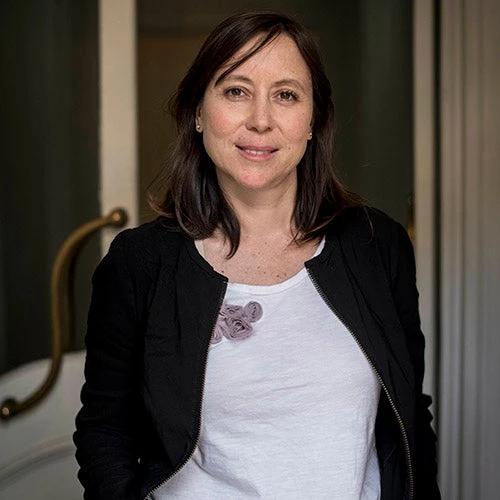The vignette below was originally published in a new joint report from the World Bank, WHO and OECD, Delivering quality health services: A global imperative for universal health coverage.
Eight years ago, when she was diagnosed with rheumatoid arthritis, an autoimmune disease that causes inflammation, swelling and acute pain in the joints, Cecilia Rodriguez was Director of a primary health care facility. “I had very bad rheumatoid arthritis and spent a lot of time in bed,” says Rodriguez, who was in her thirties when she first experienced the painful symptoms. “I realized that what I had been promoting as a health administrator was very different from what I needed as a patient.”
Rheumatoid arthritis touches people of all ages. Its exact causes are not known, but genetic and environmental factors may play a role. Up to 1% of the world’s population is affected. In Chile, where Rodriguez lives, 100,000 people are living with this lifelong condition.
For people with chronic diseases, quality health care can be defined as “an accurate equilibrium between clinical best practices and what is best for the patient, determined with the patient,” Rodriguez explains. “We don’t always need doctors who have all the answers. We need people who understand how we are coping with our condition.”
Above all, she believes patients suffering from chronic conditions that have a huge impact on daily life need to feel in control of their treatment. “As a patient, I know what I want to achieve. Clinicians can help me understand if I can achieve it and help me do so. For me, that’s the best quality of health care.”
Cecilia Rodriguez and her sister Lorena, who had been diagnosed with rheumatoid arthritis a few years earlier, established a non-profit organization to support people affected by the same condition and advocate for improved patient care. “We called the NGO ‘Me Muevo’ (‘I move’) because we learned that with this condition you have to keep your body moving, but also because ‘I move’ means ‘I take action’”, she says.
‘Me Muevo’ is part of a growing movement of patient-led organizations in Chile. Rodriguez acted as spokesperson for an alliance of associations that successfully lobbied to make prescription drugs more affordable. In 2016, Chile adopted the ‘Ricarte Soto Law’ on high-cost treatments. “Now I only pay US$ 200 a year for all my medications, instead of US$ 1500 per month,” Rodriguez says.
“Health care systems tend to be geared towards treating acute illnesses, and are rarely organized to help patients with lifelong diseases overcome the hurdles of daily life,” Rodriguez explains.
She cites the example of her sister who works and has to travel to three locations – a process that takes at least five hours – to collect her monthly prescription drugs. “In this case, quality of care would mean being able to pick up all her medications from the primary health care facility near her house, on a Saturday morning,” she says.
Rodriguez also promotes enabling patients to enter notes into their medical records between medical appointments to help physicians adjust their treatment. “If I could write that I had had a flare-up and say how I had dealt with it, my doctor would have that on record when I saw her three or four months later,” she says.
After Rodriguez attended a chronic disease self-management course in the United States, which helped her better cope with the effects of her disease, her organization worked to make the program available to patients in her own country. “Investing in teaching self-management can reduce overall costs. That is why we are bringing this program to Chile,” she says. As a result, 700 people benefited from this training through the public system, last year.
Full report is available here.


Join the Conversation